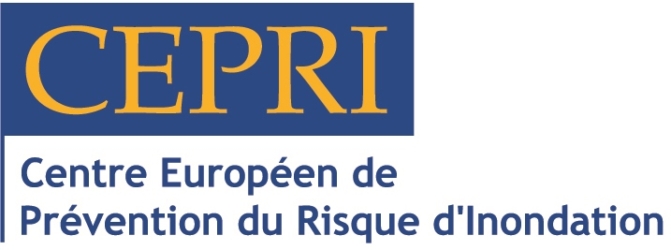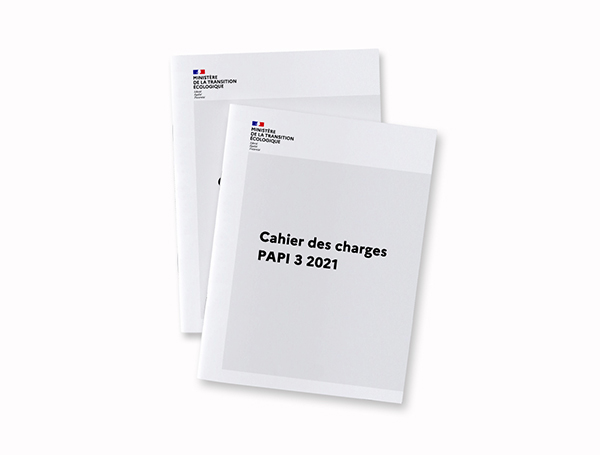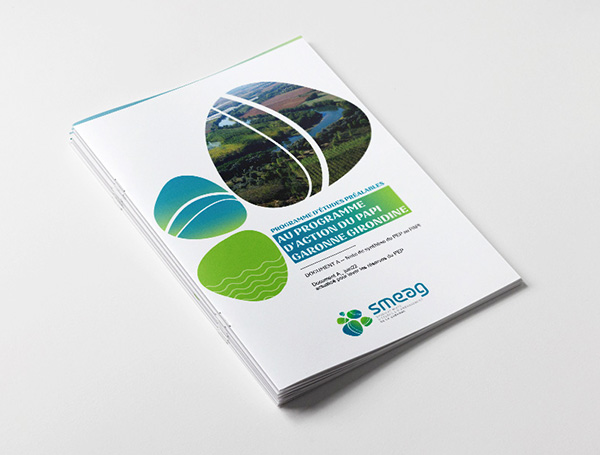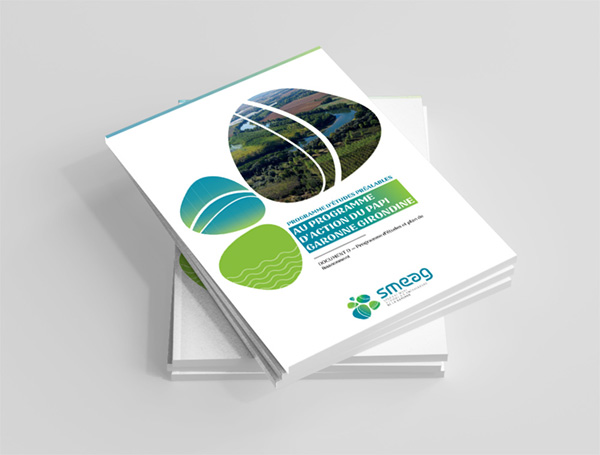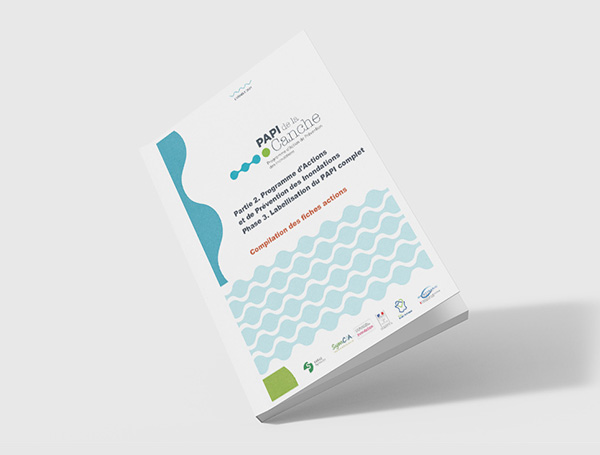The Flood Prevention Action Programs (PAPI) are contractualization tools between the State and the communities, set up within the framework of the Bachelot circular of October 1st 2002. The programs mobilize local actors at the scale of a coherent risk basin to develop a strategy on all possible levers of action :
- Axis 1 : Improving knowledge and awareness of risk
- Axis 2 : Monitoring and forecasting of floods
- Axis 3 : Alert and crisis management
- Axis 4 : Consideration of flood risk in urban planning
- Axis 5 : Reducing the vulnerability of people and property
- Axis 6 : Flow management
- Axis 7 : Management of hydraulic protection works
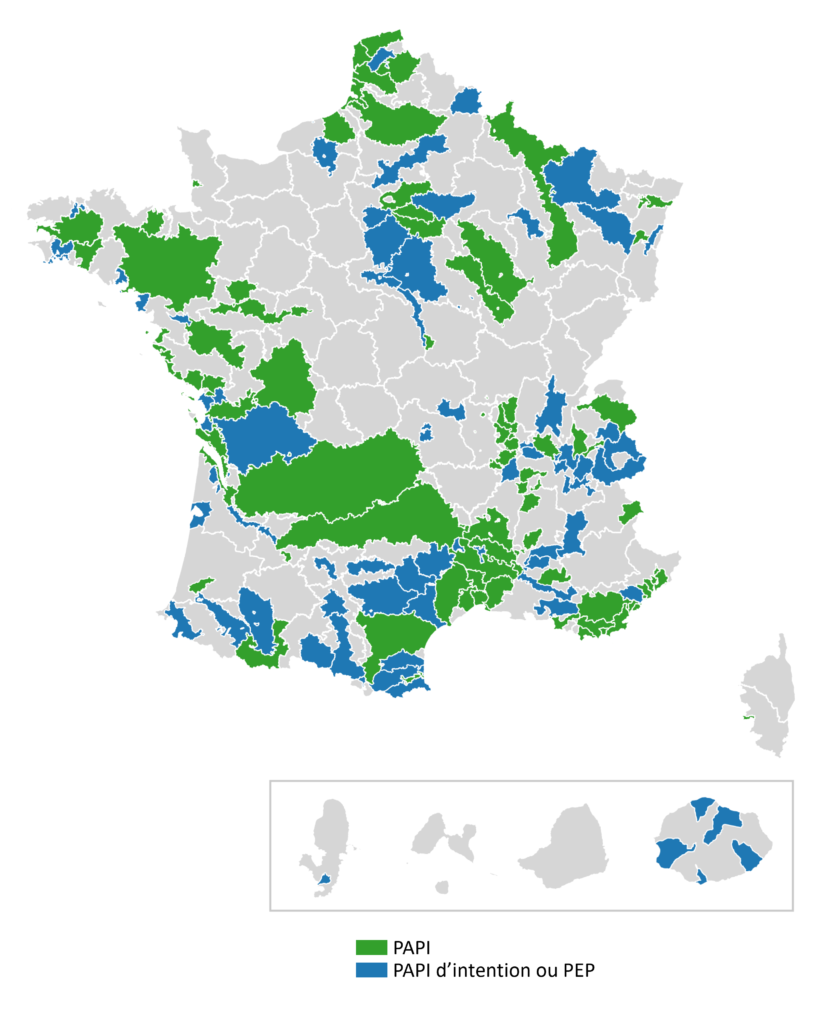
The Pre-PAPI Study Programs (PEP), formerly called PAPI of intention and PAPI cover a large part of the French territory as shown in the map above.
The State financially supports the PAPI approach by mobilizing the fund for the prevention of major natural risks (FPRNM). The financing can be completed by other subsidies provided by regional and departmental councils, water agencies, European funding, the Green Fund, etc.
By clicking on the button below, you will be able to download the files of the PAPI in progress.
PAPI Days of exchange
CEPRI organizes exchange days in which the General Directorate for Risk Prevention (DGPR) of the Ministry of Ecological Transition participates. These meetings deal with various topics related to flood management (development of a PAPI, land use planning, runoff, agriculture, GEMAPI, awareness, crisis management, vulnerability reduction, etc.).
They allow the members of the network to exchange with other representatives of local authorities, with State services, with external experts depending on the theme (designers, consultancy firms, academics…) as well as with the CEPRI team on the actions that each one is carrying out on its territory, the difficulties encountered and the success factors.
Latest news
They have joined the PAPI-SLGRI network
Communes and Towns, Communities of Communes, Agglomerations, Urban Areas and Metropolises
- Bordeaux Métropole
- Nantes Métropole
- Orléans Métropole
- Pôle d’Equilibre Territorial et Rural du Pays de Lourdes et des Vallées des Gaves (PETR PLVG)
- Ville de Paris
- Ville des Abymes (Guadeloupe)
- Ville d’Ajaccio
- Toulouse Métropole
- Grand Montauban Communauté d’agglomération (GMCA)
- Grenoble Alpes Métropole
- Comité Intercommunautaire pour l’Assainissement du Lac du Bourget – CISALB
- Communauté de communes de l’Ile d’Oléron
- Communauté de communes de l’Ile de Ré
- Communauté de communes de l’Ile de Noirmoutier
- Communauté de communes des Causses et Vallée de la Dordogne – CAUVALDOR
- Communauté de communes du Pays Fouesnantais
- Communauté d’agglomération du Pays de Saint Malo
- Communauté d’agglomération du Pays Ajaccien – La CAPA
- Communauté d’agglomération de Bastia
- Communauté d’agglomération d’Agen
- Communauté d’agglomération de Lorient
- Communauté d’agglomération de la Rochelle
- Communauté d’agglomération de la Presqu’Ile de Guérande-Atlantique – CAP ATLANTIQUE
- Communauté d’agglomération Vichy Communauté
- Communauté d’agglomération des deux baies en montreuillois
- Communauté d’agglomération du Pays Basque
- Communauté urbaine Le Havre Seine Métropole
- Métropole Rouen Normandie
- Métropole du Grand PARIS
- Morlaix communauté
- Troyes Champagne Métropole
Departments and Regions
- Conseil départemental du Cavaldos
- Conseil départemental du Loiret
Syndicats intercommunaux ou mixtes, établissements publics territoriaux de bassin (EPTB)
- EPAGE du Loing
- EPTB Aude
- EPTB Boulonnais
- EPTB Charente
- EPTB Dordogne – EPIDOR
- EPTB Garonne
- EPTB Oise Aisne
- EPTB Somme
- EPTB Vallée du Lot
- EPTB Vistre-Vistrenque
- EPTB Lys – SYMSAGEL
- Institution Adour
- SIVALODET
- SMAGE des deux Morin
- Syndicat de l’Orge
- Syndicat des Eaux et de l’Assainissement Alsace-Moselle – SDEA
- Syndicat de Rivières Brévenne Turdine – SYRIBT
- Syndicat intercommunal du bassin d’Arcachon – SIBA
- Syndicat intercommunal de la Vallée de l’Yvette – SIAHVY
- Syndicat mixte du bassin Versant de l’Armançon – SMBVA
- Syndicat mixte du bassin versant du Réart – SMBVR
- Syndicat mixte pour les inondations, l’aménagement et la gestion de l’eau Maralpin – SMIAGE
- Syndicat mixte Baie de Somme Grand Littoral Picard
- Syndicat mixte Canche et Authie
- Syndicat mixte interdépartementale de la Vallée de la Lèze – SMIVAL
- Syndicat mixte Vendée Sèvre Autizes
- Syndicat mixte pour l’Assainissement et la Gestion des eaux du bassin versant de l’Yerres – SyAGE
- Syndicat mixte pour l’aménagement et la gestion des eaux de l’Aa – SMAGEAA
- Syndicat mixte des bassins hydrauliques de l’Isère – SYMBHI
- Syndicat mixte Moselle Aval
- Syndicat mixte du Bassin Bruche Mossig
- Syndicat mixte du Bassin du Gave de Pau – SMBGP

